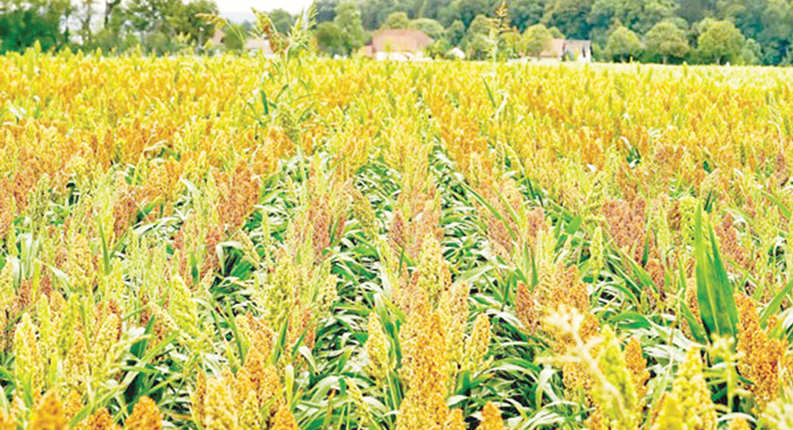Nigeria moves to become sweeteners producer, asks farmers to grow plants
The federal government is to provide necessary incentives that will make the country to become major sweeteners producer in West Africa and the African continent as a whole, with the propensity of being a major exporter of sweeteners. Consequently, the government has directed farmers to go into commercial production of all sweetener plant species to […]

Farmers are encouraged to grow sweet sorghum
The federal government is to provide necessary incentives that will make the country to become major sweeteners producer in West Africa and the African continent as a whole, with the propensity of being a major exporter of sweeteners.
Consequently, the government has directed farmers to go into commercial production of all sweetener plant species to boost production.
The director-general of the Raw Material Research Development Council (RMRDC), Professor Hussaini D. Ibrahim, who made this known in a document on the country’s effort to boost sweeteners production, noted that the Council had mobilised investors for processing.
Our reporter, who has been monitoring the subsector, reports that for centuries, honey and sugar have been used to sweeten food and beverages, but today, a range of sweeteners have been developed to provide low-calorie alternatives to sugar.
- Why I withdrew case at election tribunal – Al-Makura
- Kaduna begins airlift of 6,487 pilgrims to Saudi Arabia
In view of the increasing interest of consumers in sweeteners consumption, the global sweetener manufacturers have been witnessing robust year-on-year growth for the past few years owing to the rising preference for low-sugar food products, coupled with an extensive application range of sweeteners.
The global sweeteners market size was valued at USD94.48 billion in 2021 and is expected to expand at a compound annual growth rate (CAGR) of 6.4 per cent from 2022 to 2030.
The demand for sweeteners in Nigeria is projected to reach 2.15 million metric tonnes by 2026, up from 2.11 million metric tonnes in 2021. This represents an average growth rate of 0.3 per cent each year since 2017.
During the same period, available statistics showed that the production capacity of sweeteners in Nigeria would only rise to a meager 53,000 metric tonnes by 2026 from 45,000 metric tonnes produced in 2021. This represents an average growth rate of 2.7 per cent annually since 2017. Thus, there is the need for a gregarious development of the sector in the country in order to reduce the cost of importation and for the country to benefit from the increasing revenue generated from the sale of sweeteners globally.
How local farmers can benefit
The RMRDC has advised local farmers to grow sweet sorghum, a multipurpose plant that has been developed for production of glucose syrup by the Council.
Nigeria requires an estimated 90,000 metric tonnes of glucose syrup annually for use in food, soft drink, confectionery and pharmaceutical industries. However, only about 20 per cent of this is being sourced locally. The juice from the stalk can be used for sugar syrup or bio-alcohol, its grains for human consumption, stovers and baggase for animal consumptions. Depending on the condition, the yield per ha of sweet sorghum grains and stalks are 3-7 tonnes and 54-69 tonnes respectively.
Professor Ibrahim said the Council had carried out field trials of sugar beet in Plateau, Niger and Nasarawa states, as well as the Federal Capital Territory (FCT). According to him, the trials established that sugar beet can effectively grow well in Nigeria; and this has encouraged the Council to embark on sugar beet production as alternative source of raw material for the sugar industry in Nigeria. He said the Council was partnering with the Niger State Government and PASUA USA Agro Limited on the development of sugar beet value chain in the country.
In addition, he said the Council had developed a 75 kg/batch sorbitol production pilot plant using cassava as the primary raw material. This is important as Nigeria is one of the highest producers of cassava globally.
“The plant can be used to produce liquid/syrup and crystal/powder sorbitol, which can be used in the production of toothpaste, vitamin C, dietetic food and beverage, surfactants, cosmetics and pharmaceuticals,’’ the director-general said.
While calling on the farmers and other investors to visit the Council’s website, offices in Abuja and the 36 states for further information on the project, the director-general noted that the initiative would lead to job and wealth creation, as well as poverty reduction in the country.
